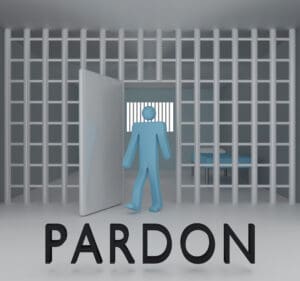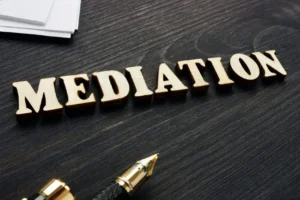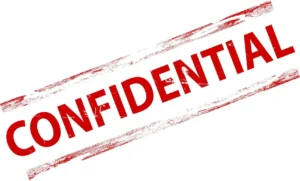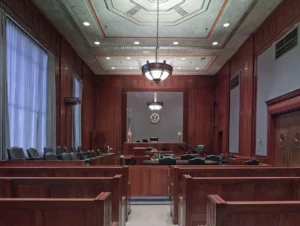You, as a tenant or landlord, have legal rights and responsibilities that govern your relationship and can dictate how disputes are resolved. This article will explore into the intricacies of landlord-tenant disputes, outlining key legal rights and responsibilities for both parties to ensure a fair and smooth resolution process. By understanding these crucial aspects, you can protect yourself and navigate these complex situations more effectively.
Legal Framework
Overview of Landlord-Tenant Laws
One of the fundamental aspects of landlord-tenant disputes is the legal framework that governs these relationships. Landlord-tenant laws are designed to protect the rights of both parties and outline their responsibilities to each other.
Key Legislation and Regulations
To understand the legal framework of landlord-tenant disputes, it is vital to be familiar with the key legislation and regulations that apply to these situations. These may include the Residential Tenancies Act, eviction laws, lease agreements, and building codes.
Regulations: It’s crucial for both landlords and tenants to adhere to these laws to avoid conflicts and ensure a fair and respectful rental relationship. Failure to comply with these regulations can result in legal consequences, such as fines or even eviction.
Rights and Responsibilities
Landlord Obligations
Any landlord renting out a property has certain obligations they must fulfill. On the top of the list is providing a safe and habitable living space for tenants. This includes maintaining the property in good repair, ensuring vital services like water and heating are functioning properly, and addressing any health and safety concerns promptly.
Tenant Obligations
Any tenant who signs a lease also has responsibilities to uphold. On signing a rental agreement, tenants are obligated to pay their rent on time, keep the property clean and in good condition, and adhere to any terms outlined in the lease agreement.
To maintain a positive landlord-tenant relationship, it’s crucial for tenants to respect the property they are renting and follow the agreed-upon terms of the lease. Failure to do so could result in legal consequences, such as eviction or loss of security deposit.
Common Disputes
Rent and Payment Issues
Even in well-established relationships between landlords and tenants, disputes over rent and payment can arise. Payment problems can range from late payments to disagreements over the amount due. It’s crucial for both parties to clearly outline payment terms in the rental agreement to avoid misunderstandings.
Repairs and Maintenance Disputes
One common source of conflict between landlords and tenants involves repairs and maintenance issues. Tenants may feel frustrated if crucial repairs are not promptly addressed by the landlord, while landlords may argue that the tenants are responsible for causing damage. Communication is key to resolving these disputes swiftly.
The responsibility for repairs and maintenance is typically outlined in the lease agreement. It’s important for both parties to understand their obligations to maintain a safe and habitable living environment.
Resolving Disputes
Mediation and Arbitration
After attempting to resolve a landlord-tenant dispute through communication, the next step is mediation or arbitration. Mediation involves a neutral third party helping the landlord and tenant reach a mutually agreeable solution. Arbitration, on the other hand, involves a third party making a decision based on the presented arguments. Both options can provide a quicker and less expensive resolution compared to going to court.
Going to Court
Resolving a landlord-tenant dispute by going to court should be a last resort. This process can be time-consuming, costly, and may damage the relationship between the landlord and tenant. However, in some cases, it may be necessary if other methods have been unsuccessful in resolving the dispute. It’s important to gather all relevant documentation and evidence to present a strong case in court.
Final Words
With this in mind, it is crucial for both landlords and tenants to understand their legal rights and responsibilities in order to navigate disputes effectively. By being aware of the laws governing landlord-tenant relationships, individuals can protect themselves and ensure a fair resolution in case conflicts arise. Note, knowledge is power, and being informed is the first step towards a harmonious and respectful rental agreement.
FAQ
Q: What are landlord-tenant disputes?
A: Landlord-tenant disputes are disagreements or conflicts that arise between a landlord and a tenant regarding their rental agreement or the terms of their tenancy.
Q: What are the legal rights of landlords in a landlord-tenant dispute?
A: Landlords have the legal right to receive rent on time, to enter the rental property for inspections or repairs with proper notice, and to evict tenants for non-payment of rent or violation of the lease agreement.
Q: What are the legal responsibilities of landlords in a landlord-tenant dispute?
A: Landlords are legally responsible for providing a safe and habitable living environment for tenants, maintaining the property in good repair, and following the terms of the lease agreement. They are also responsible for respecting tenants’ privacy and not engaging in discriminatory practices.
Type of Attorney and How to Find Them on Attorneys.Media
Landlord-tenant disputes often require the expertise of attorneys specializing in real estate law, property disputes, or tenant rights. These attorneys are knowledgeable about the specific laws and regulations governing rental agreements, evictions, and tenant-landlord relationships. They can provide invaluable assistance in resolving conflicts, ensuring that both parties understand their legal rights and responsibilities.
Finding an Attorney: To find an experienced landlord-tenant dispute attorney, visit Attorneys.Media and utilize the search functionality to explore profiles of qualified attorneys in your area. Focus on those with expertise in real estate law, property disputes, and tenant rights. You can refine your search by selecting relevant categories such as “Real Estate Law” or “Property Disputes.”
Why You Need a Specialist: Specialist attorneys in landlord-tenant law are crucial because they understand the complexities of rental agreements and the legal frameworks that govern landlord and tenant rights. They can assist with drafting and reviewing lease agreements, advising on eviction processes, and representing clients in court if disputes escalate. Their expertise ensures that you are well-informed and prepared to handle any legal issues that arise in the landlord-tenant relationship.
Steps to Take:
- Search for Attorneys: Begin your search on Attorneys.Media using keywords such as “landlord-tenant dispute attorney” or “real estate lawyer.”
- Review Profiles: Look for attorneys with a strong track record in handling landlord-tenant cases. Examine their experience, areas of expertise, and client reviews to ensure they are well-qualified to manage your legal needs.
- Contact and Consult: Reach out to a few selected attorneys for consultations. Discuss your specific situation and inquire about their experience with similar cases. This will help you find an attorney who is a good fit for your needs and can effectively represent your interests.
By following these steps, you can find a competent attorney who can guide you through the complexities of landlord-tenant disputes, ensuring that your rights are protected and conflicts are resolved effectively.
Attorneys.Media Video Document References
- Is Personal Injury Part of Your Law Practice?
- As an Attorney, How Are You Generating Content for Your Online Presence?
- How Can You Help Potential New Clients Get Their Questions Answered?
- How Do You Differentiate Yourself When Someone Looks Online for Help?
- How Do You Differentiate Yourself as a Criminal Defense Attorney?
- Have You Been Thinking About Video Marketing for Your Law Firm?
- Should Attorneys Use Video Marketing to Attract New Clients?
- What Do Potential Clients See When They Research Your Name Online?
- How Attorneys.Media Can Help You




















